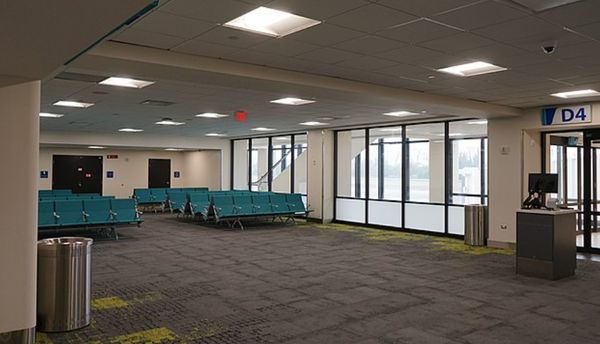The question of when to join the line for boarding an airplane is a subject of debate among travelers. Some passengers can’t resist the excitement of the travel experience and choose to line up early, while others prefer to stay seated until the last moment. This contrast in behavior has even led airline employees to jokingly refer to these eager early birds as “Gate lice.”

Drake Castañeda, a corporate communications manager at Delta Air Lines and former gate agent, believes that excitement plays a role in early line formation. Travelers, eager to reach their destination, find it difficult to sit still and prefer to stand. Castañeda himself admits to feeling the same way, especially on longer flights.
However, this innocent preference for early standing can inadvertently disrupt the boarding process. Passengers who queue up prematurely congest airport walkways, prolong the waiting time for others, and create confusion among travelers.
The psychology behind this behavior reveals two possible explanations: conformity and competition. People often look to others for cues on how to behave, and when one person stands up, others follow suit. Moreover, airline policies contribute to the incentive for early lining up. Flights are frequently full, and passengers feel pressured to secure their space as soon as possible. The fear of having to gate check carry-on bags due to limited overhead bin space is a prime example. Being the last in Group 6 instead of the first in Group 7 can make all the difference.
This heightened sense of competition and uncertainty in the airline industry can lead to anxiety and even antagonism among passengers. Passengers may be motivated to line up early, even if it means cutting ahead of others, because the potential consequences of not doing so are perceived as more significant.
However, it’s important to note that while early lining up may seem rational, it does not necessarily expedite the boarding process. In fact, it can have the opposite effect by causing congestion and confusion near the gate.
Overcrowding near the gate can slow down the boarding process for passengers who are following the proper sequence, especially for those who require special assistance. The crowded space can impede their access and create difficulties.
Ultimately, the concepts of conformity and competition are deeply ingrained in human behavior. As a species that relies on collectives for survival, humans naturally look to others for cues on how to behave. The first few individuals who choose to stand up set the example for others to follow.
In conclusion, when to get in line for boarding an airplane is influenced by a complex interplay of psychological factors, airline policies, and human social behavior. While early lining up may make sense in some contexts, passengers should be mindful of the potential impact on the boarding process and the comfort of fellow travelers. Airlines can also play a role in addressing these issues by implementing policies and procedures that reduce pressure and uncertainty during boarding.





